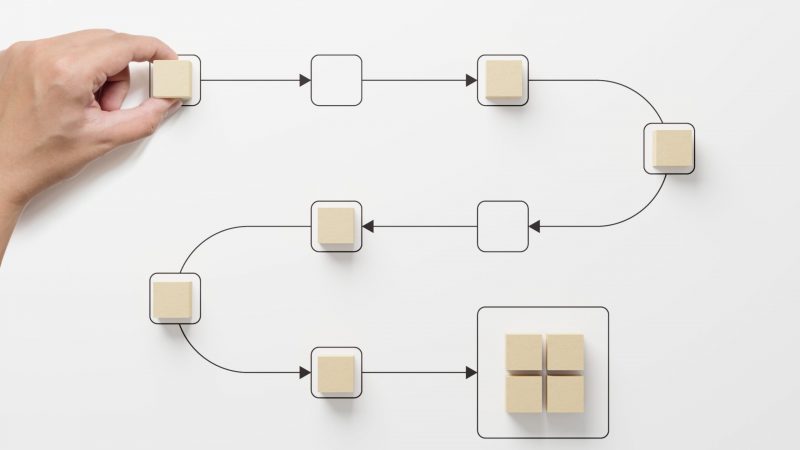Predictive budgeting is a term that can be used interchangeably with many other terms: Forecasting, Predictive Analytics, Proactive or Dynamic Budgeting, and Rolling Budgeting.
While predictive budgeting is a type of forecasting, predictive budgeting focuses on forecasting the budget based on all of the factors around it. On the other hand, the term forecasting usually refers to the broader forecasting of sales, revenue, etc., for a company in any given time period.
Rolling budgeting is also similar, however the focus on rolling budgets is constantly updating the budget based on new data, while predictive budgeting goes more in depth at the beginning of the budgeting process, but doesn’t necessarily have to be updates so often (although it can be).
What exactly is predictive budgeting?
Predictive budgeting is a budgeting method that uses historical data and predictive analytics to forecast future income and expenses. It involves analyzing past trends and patterns, as well as external factors such as economic conditions, market trends, and customer behavior, to create a more accurate projection of future financial outcomes.
The goal of predictive budgeting is to anticipate changes in income and expenses before they happen, and to adjust financial plans accordingly. This can help organizations to be more agile and responsive to changing business conditions, and to make more informed financial decisions.
For example, a company might use predictive budgeting to forecast its sales revenue for the upcoming year. By analyzing historical sales data and market trends, the company can estimate how much revenue it is likely to generate in the future, and use this information to create a more accurate budget.
Similarly, a local government or a non-profit might use predictive budgeting to anticipate changes in tax revenue or donations based on economic conditions and demographic shifts. By forecasting changes in revenue ahead of time, the government or organization can adjust its spending plans and avoid unexpected budget shortfalls.
In summary, when done right, predictive budgeting can help organizations to make more informed financial decisions and to be better prepared for the future.
The 4 benefits of using predictive budgeting:
1) More accurate financial projections
By using historical data and predictive analytics, predictive budgeting can create a more accurate projection of future income and expenses. This can help organizations to make more informed financial decisions and avoid unexpected budget shortfalls.
2) Improved resource allocation
Predictive budgeting can help organizations to allocate resources more effectively by anticipating changes in income and expenses. This can help to ensure that resources are used in the most efficient and effective way possible.
3) Greater agility and responsiveness
By anticipating changes in income and expenses ahead of time, organizations can be more agile and responsive to changing business conditions. This can help to ensure that they are better prepared to adapt to unexpected events and to take advantage of new opportunities as they arise.
4) Better communication and collaboration
Predictive budgeting can facilitate better communication and collaboration within an organization by providing a common framework for financial planning and decision-making. This can help to ensure that everyone is working towards the same goals and that resources are allocated in a way that supports those goals.
The successful implementation of predictive budgeting requires several key requirements, including:
- High-quality data- Accurate and reliable data is essential for accurate predictions. To implement predictive budgeting, an organization must have access to high-quality data from a variety of sources, such as financial statements, customer data, market research, and economic indicators.
- Advanced analytics capabilities- Implementing predictive budgeting requires advanced analytics capabilities, including machine learning and data modeling techniques. Organizations need to have the right tools and resources to analyze data effectively and to create accurate predictions.
- Skilled personnel- Predictive budgeting requires skilled personnel who can manage and analyze data effectively, and who have the expertise to interpret the results of predictive models. Organizations need to invest in the development of skilled personnel and provide ongoing training to ensure that they have the necessary skills and expertise.
- Effective collaboration and communication- Predictive budgeting requires effective collaboration and communication among different departments within an organization. Finance teams must work closely with other departments, such as marketing and sales, to gather the necessary data and to create accurate predictions.
- Continuous improvement- Predictive budgeting is an ongoing process that requires continuous improvement. Organizations must be willing to invest in the development of new analytics capabilities, to update their data sources, and to refine their predictive models as new data becomes
Although Predictive budgeting has many benefits, it also has some challenges:
- Complexity- Predictive budgeting can be complex and require advanced analytics capabilities. This might mean significant investment in technology, infrastructure, and personnel.
- Uncertainty- Despite its accuracy, predictive budgeting is still subject to uncertainty and may not always be able to accurately predict future outcomes (especially in today’s fast changing economic environment)
- Cost- Implementing predictive budgeting can be expensive, requiring significant investment in data management, analytics tools, and personnel.
- Time-consuming- Predictive budgeting requires significant time and effort to collect and analyze data, which may be a challenge for organizations with limited resources.
Conclusion
Predictive budgeting is a great tool for achieving more accurate forecasting and resource allocation in the budgeting process. Predictive Budgeting can particularly benefit organizations with large and complicated budgets, as resource allocation is extra important in this case.
Overall, the benefits of predictive budgeting may outweigh the drawbacks, but organizations must carefully consider their resources, capabilities, and needs before implementing this approach.



